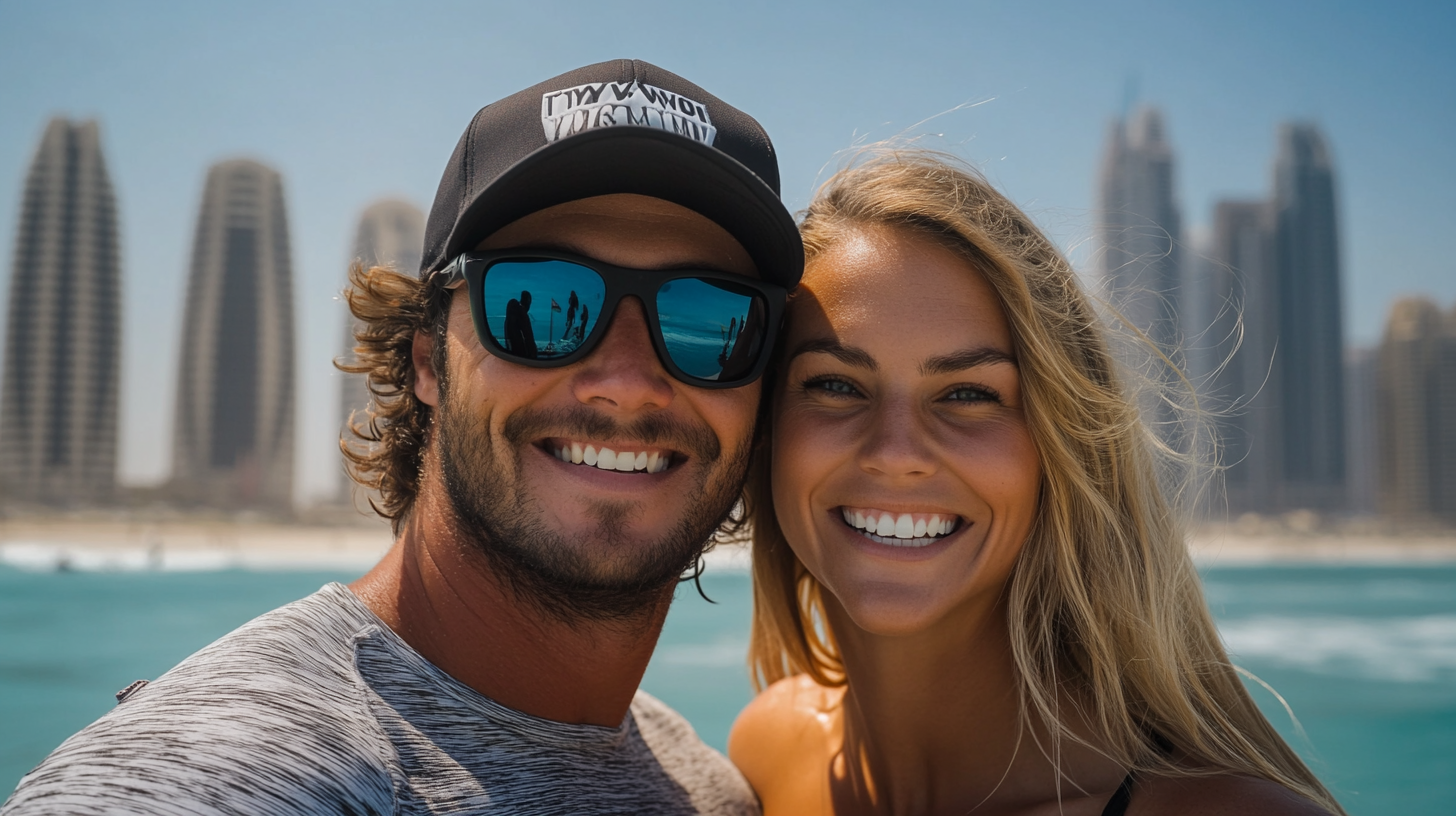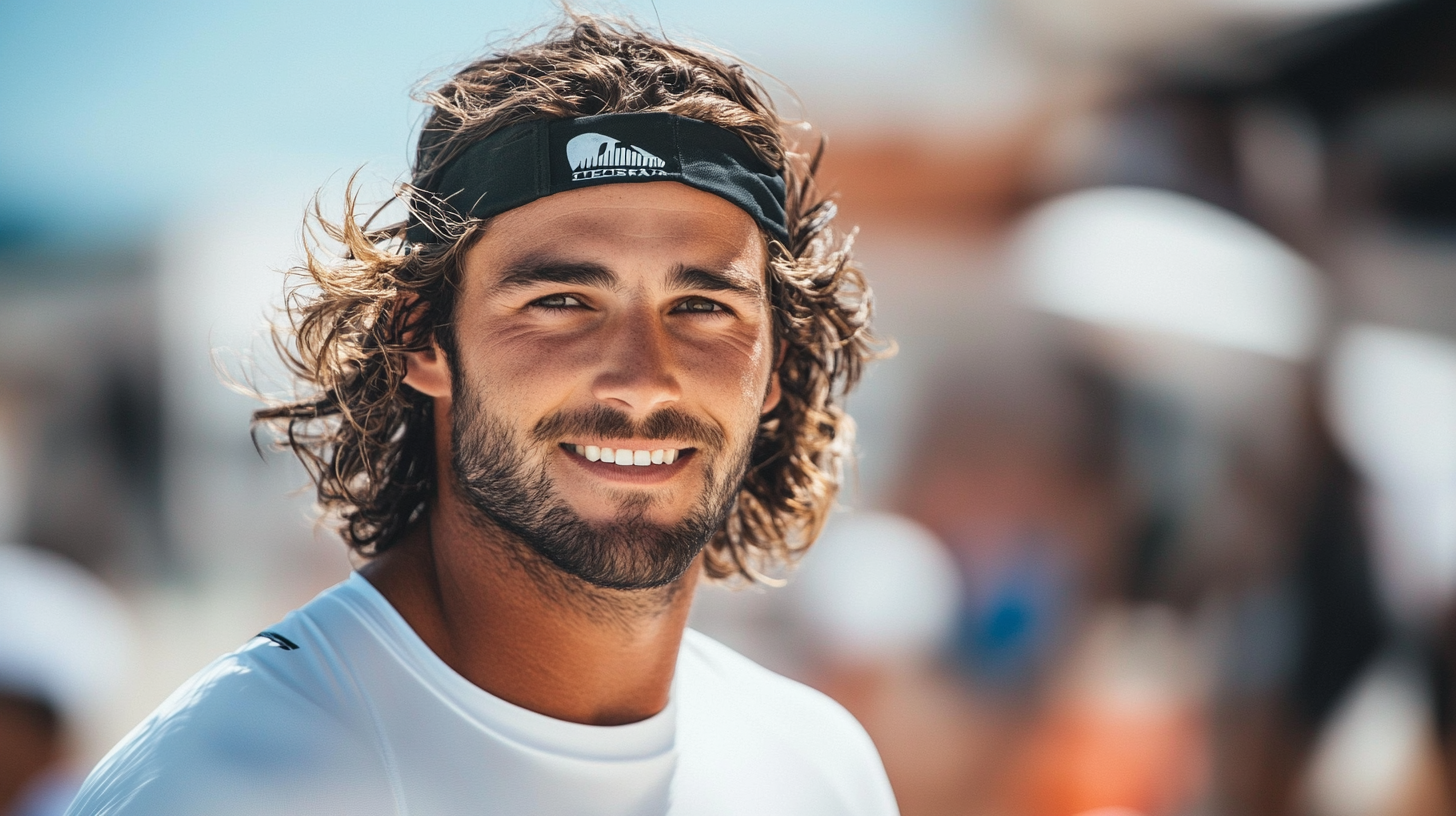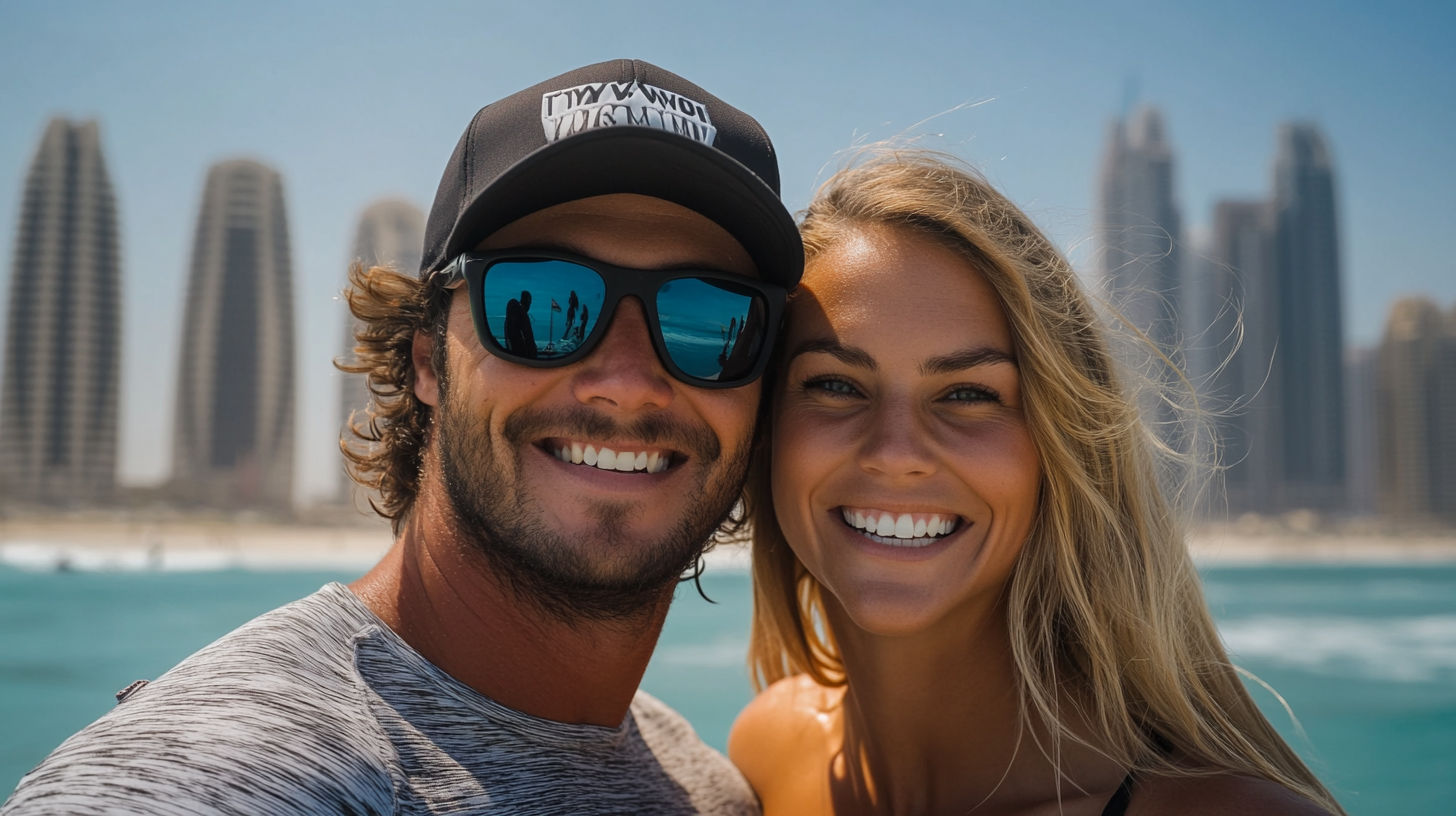

Lilli Wright’s criticism of the WSL
Lilli Wright has voiced her frustration with the World Surf League (WSL), accusing the organization of failing to adequately support and respect her wife, Tyler Wright, a two-time world surfing champion. Her criticism centers around the WSL’s decision to schedule a 2025 event in Abu Dhabi, a location where strict anti-LGBT+ laws are in place. Lilli, who has been a vocal advocate for LGBT+ rights alongside Tyler, expressed disappointment that the WSL would choose a venue that poses significant risks to the safety and well-being of LGBT+ athletes and their families.
In her statements, Lilli highlighted the disconnect between the WSL’s public stance on inclusivity and its actions. She pointed out that while the organization has made efforts to promote equality and diversity in the sport, the decision to hold an event in a country with such discriminatory laws sends a conflicting message. According to Lilli, this choice undermines the progress that has been made in creating a more inclusive environment for all surfers, particularly those from the LGBT+ community.
“It’s not just about Tyler,” Lilli said in a recent interview. “It’s about every athlete who identifies as LGBT+. The WSL needs to understand that by holding events in places like Abu Dhabi, they are putting these athletes in harm’s way and sending a message that their safety and rights are not a priority.”
Lilli’s criticism has sparked a broader conversation within the surfing community about the responsibilities of sports organizations when it comes to choosing event locations. Many have echoed her concerns, questioning whether the WSL is truly committed to fostering an inclusive and safe environment for all its athletes.
Tyler Wright’s legacy and advocacy
Tyler Wright is not only a two-time world surfing champion but also a trailblazer in the sport, known for her fierce advocacy for equality and inclusion. Throughout her career, Tyler has used her platform to speak out on issues that extend beyond the waves, particularly in support of the LGBT+ community. As one of the few openly queer athletes in professional surfing, she has consistently pushed for greater visibility and acceptance within the sport.
Her journey has been marked by both personal and professional triumphs, but also by challenges that have shaped her into a vocal advocate for change. Tyler has often spoken about the importance of creating a safe and supportive environment for all athletes, regardless of their sexual orientation or gender identity. She has been a strong proponent of the idea that sports should be a space where everyone feels welcome, and where diversity is celebrated rather than sidelined.
In 2020, Tyler made headlines when she wore a rainbow flag on her jersey during a competition, a bold statement of solidarity with the LGBT+ community. This act of defiance was not just a personal expression but a call to action for the surfing world to embrace inclusivity. Her decision to wear the flag was met with widespread support, but it also highlighted the ongoing struggles faced by LGBT+ athletes in a sport that has historically been slow to address issues of diversity and inclusion.
Tyler’s advocacy extends beyond symbolic gestures. She has been actively involved in conversations with the WSL and other organizations, urging them to take concrete steps to ensure that all athletes, regardless of their identity, are treated with respect and dignity. Her efforts have helped to bring attention to the unique challenges faced by LGBT+ surfers, from discrimination and exclusion to the lack of representation in the sport’s leadership and decision-making bodies.
Despite her success and influence, Tyler has not been immune to the difficulties that come with being an outspoken advocate. She has faced criticism and pushback from some quarters, but she remains undeterred in her mission to make surfing a more inclusive and equitable space. For Tyler, the fight for equality is deeply personal, and she has made it clear that she will continue to use her platform to advocate for change, both within the sport and beyond.
The controversy surrounding Abu Dhabi’s anti-LGBT+ laws
The decision to hold a World Surf League (WSL) event in Abu Dhabi has ignited significant controversy due to the region’s strict anti-LGBT+ laws. The United Arab Emirates (UAE), of which Abu Dhabi is the capital, enforces legal and social restrictions on LGBT+ individuals, with same-sex relationships being criminalized and punishable by imprisonment, fines, or even more severe penalties. Public displays of affection between same-sex couples are also prohibited, and the country has a history of deporting or detaining individuals based on their sexual orientation or gender identity.
For many in the surfing community, the WSL’s decision to host an event in such a location raises serious concerns about the safety and well-being of LGBT+ athletes, staff, and fans. Critics argue that by choosing Abu Dhabi as a venue, the WSL is not only putting LGBT+ individuals at risk but also sending a message that their rights and safety are secondary to the commercial interests of the league. This has led to widespread disappointment, particularly among those who have long advocated for greater inclusivity in the sport.
In response to the backlash, some have pointed out that the WSL has previously made public commitments to promoting diversity and inclusion within the sport. However, the decision to hold an event in a country with such discriminatory laws has led many to question the sincerity of these commitments. For athletes like Tyler Wright, who have been vocal about their identity and advocacy for LGBT+ rights, the decision feels like a betrayal of the values they have fought to uphold.
While the WSL has yet to make a formal statement addressing these concerns, the controversy has sparked a broader conversation about the role of sports organizations in choosing event locations. Many believe that leagues like the WSL have a responsibility to ensure that the venues they select align with their stated values of inclusivity and equality. Holding events in countries with anti-LGBT+ laws, they argue, undermines the progress that has been made in creating a more welcoming and diverse environment for all athletes.
For LGBT+ surfers and their allies, the issue is not just about the potential risks posed by competing in Abu Dhabi, but also about the message it sends to the global surfing community. By holding an event in a location where LGBT+ individuals are not afforded basic human rights, the WSL risks alienating a significant portion of its fanbase and undermining the efforts of athletes like Tyler Wright, who have worked tirelessly to make the sport more inclusive.
“It’s not just about the event itself,” one anonymous surfer commented. “It’s about what it represents. By choosing Abu Dhabi, the WSL is essentially saying that the safety and dignity of LGBT+ athletes are negotiable.”
As the 2025 event approaches, the pressure on the WSL to reconsider its decision is likely to intensify. Many within the surfing community are calling for the league to either relocate the event or take a stronger stance in support of LGBT+ rights, ensuring that all athletes feel safe and respected, regardless of where they compete.
Lilli Wright’s criticism of the WSL’s decision
Lilli Wright hasn’t held back in her criticism of the World Surf League (WSL) after they announced plans to host a 2025 event in Abu Dhabi. She’s made it clear she’s not stoked about the decision, especially considering the region’s strict anti-LGBT+ laws. Wright, who’s married to two-time world surfing champ Tyler Wright, reckons the WSL is turning a blind eye to the safety and well-being of its athletes, particularly those in the LGBT+ community.
In her view, the WSL’s move to hold a comp in a place where her wife’s very existence could be criminalised is more than just a bad call—it’s a slap in the face. Lilli’s been vocal about how the league’s decision feels like a betrayal, especially given Tyler’s status as one of the sport’s top athletes. She’s not just worried about Tyler, though. Lilli’s pointed out that the WSL should be standing up for all its surfers, not putting them in situations where they could face discrimination or worse.
“It’s like they’ve forgotten who they’re supposed to be looking out for,” she’s said, calling out the WSL for what she sees as a lack of respect for Tyler and other LGBT+ surfers. For Lilli, it’s not just about the waves—it’s about the people riding them.
The impact of anti-LGBT+ laws on athletes
The decision to host an event in a country with anti-LGBT+ laws doesn’t just raise eyebrows—it raises serious concerns for the athletes themselves. For surfers like Tyler Wright, who’s openly queer, competing in a place like Abu Dhabi isn’t just about catching the best waves. It’s about navigating a legal landscape where their very identity could put them at risk. In the UAE, same-sex relationships are illegal, and public displays of affection between same-sex couples can lead to arrest or worse. That’s not exactly the kind of environment you want to be in when you’re supposed to be focused on winning a world title.
It’s not just about the legal risks, either. There’s the emotional toll of competing in a place where you know you’re not welcome for who you are. Athletes like Tyler have worked their whole lives to get to the top of their sport, and now they’re being asked to perform in a country where their rights are non-existent. It’s a bit like asking a fish to surf on dry land—completely out of place and downright dangerous.
For many LGBT+ athletes, the decision to compete in such locations isn’t just a professional one—it’s personal. It’s about whether they feel safe, respected, and valued by the very organisations that are supposed to have their backs. And when those organisations choose to hold events in places with anti-LGBT+ laws, it sends a pretty clear message about where their priorities lie. Spoiler alert: it’s not with the athletes.
There’s also the question of visibility. Tyler Wright has been a vocal advocate for LGBT+ rights, using her platform to push for more inclusivity in surfing. But how can she continue to do that when the WSL is holding events in places where her advocacy could land her in hot water? It’s a tough spot to be in, and it’s left many wondering whether the WSL is truly committed to supporting all of its athletes, or just the ones who fit a certain mould.

